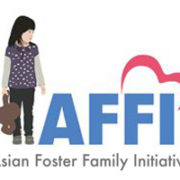DID you know that among Asian foster care children in Los Angeles, Filipino foster children make up the highest count?
My objective is to share more with our local Filipino community so that we can educate our kababayans to help find culturally sensitive homes for these children and youth.
As a social worker for the Asian Foster Family Initiative, I’ve become a little more familiar with a perspective that many people in our community might not not think about everyday: the perspective of foster children who come from a multicultural background.
Below you will find a story through the eyes of a former Filipino foster child. Names have been changed and stories have been slightly altered for security and privacy.
My name is Mericel
I was six years old when it all happened. I was born here in Los Angeles shortly after my mama and papa migrated from Quezon City. From what I remembered, they were always hard working. So much that there would be days where I couldn’t see them because they worked so much. Mama was a live-in caregiver who would come home two days a week while Papa was a nurse working 12-14 hour shifts most days.
You might be wondering who was taking care of me while they were gone. My Tita Grace lived with us and helped watch over me during the week. I remember she would wake me up in the morning, cook me spam or vienna sausages in the morning, and take me to school.
Of course, Tita Grace was also working two part-time jobs at the time. There were some days that Tita wasn’t able to pack me a baon (lunch) and she would forget to give me lunch money. Somehow, my school teacher noticed that I didn’t have a lunch on most days. When she tried scheduling parent-teacher meetings, my parents weren’t responding to her.
One day Tita Grace left to grab some groceries and told me not to answer the door if anyone doorbelled. While watching my favorite cartoon, I suddenly heard three knocks on the door. I was able to see through one of the windows that it wasn’t Mama or Papa. It was someone that I didn’t know. I was startled when they asked through the door if my parents were home. I suddenly heard Tita Grace’s voice approaching the front door and started to hear their escalating conversation.
That night, I was taken by DCFS. I would later find out that my teacher was obligated to report her suspicions to the Department of Child and Family Services (DCFS) of LA County.
I always wondered why. But I guess that even though they didn’t intend to, I was neglected by parents. In the eyes of DCFS, my parents needed to not only make sure my daily needs and were being met but that someone was watching over me consistently. I shouldn’t have been left alone at six years old, even if was for only 30 minutes. Paired with the reports from my teacher and DCFS finding me at home alone, I was temporarily removed from home until my parents were able to prove that they could support me while ensuring I was consistently supervised and well taken care of while they were away at work.
The first family I joined did not look like me and definitely did not speak Tagalog in their home. I was told that I would be able to see my parents every week, and I did. But those nights sleeping in an unfamiliar home, missing my family, and even missing the smallest things like Tita’s cooking and watching the Filipino Channel made it so hard. Especially at six years old.
What happened to Mericel?
At the hands of her county social worker, Maricel was placed temporarily into a foster home. The social worker called around to families in the database for support on who can take Mericel in.
Because Mericel spoke Tagalog and English and was accustomed to Filipino food, the social worker tried to find a relative or a Filipino family in the database who can take Mericel into their home on a temporary basis while Mericel’s family tried to gain custody back.
One major problem is that there aren’t many Filipino families who are in the database to take in foster children. This means that for however long it takes for Mericel’s parents to earn custody back, Mericel may be in a foster home that may further heighten her trauma because this new family may not understand her cultural needs or nuances.
To find out more about children like Mericel and to find out how you can provide a temporary support system for Filipino foster children, please don’t hesitate to call or email me.
We are looking for more Filipino families to register as Resource (foster) Parents and our team offers you support throughout the process. We have trainings coming up in May and we would be happy to see more Filipino faces to support our kababayans who need our support.
“Don’t let fear hinder you from becoming a Resource Parent. If you have the heart to help, follow it,” Armida Chow, a Filipina Resource Parent urging Filipinos to inquire about the fostering journey to see if it’s a fit for their family.
***
We all know a family member, relative, or perhaps even ourselves who have the resources and the heart to share with these children. In order to attend our Pre-Approval Parent Trainings in March 2019, you must attend an Orientation hosted by the Asian Foster Family Initiative, which is the first and only Asian Pacific Island focused foster family agency in the nation. Please contact Mariah at [email protected] or (213) 235-4851 for any questions and/or to register.





